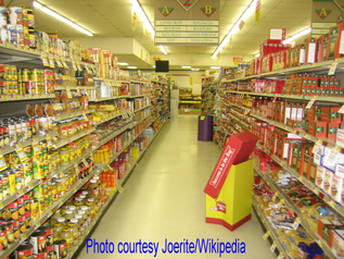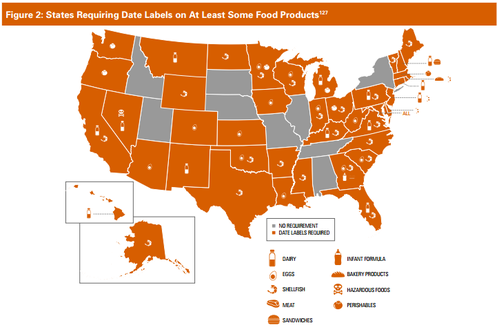
First and foremost, there are no federal regulations that are required to sell most foods. The regulations are left to the states and many do not have any laws as to labeling. The map below is from a recent report from the Harvard Food Law and Policy Clinic:

 RSS Feed
RSS Feed
